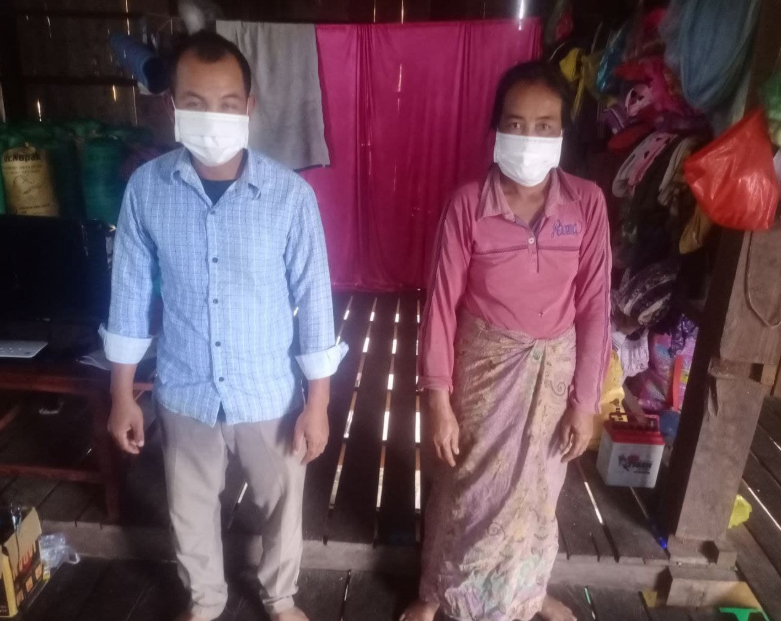This Project funded by the European Union with a grant of Euro 425,000 of a 2.5 million project between API, CARE Cambodia and InSTEDD, and it was aimed to enhance citizens’ participation through innovative tech solutions. The Project was part of the Social Accountability Framework (I-SAF), a broad reform agenda created by the Government, and supported by development partners and the Civil Society. While our overall objective was to contribute to developing effective, accountable and transparent institutions and ensure public access to information, API and its partners were specifically concentrating on empowering young women belonging to indigenous minority groups, as well as on building the capacity of the Community Accountability Facilitators (CAFs) in five provinces (Ratanakiri, Mundulkiri, Kratie, Stueng Treng, Koh Kong), where we worked with the following local implementers:
Partners for Development in Action; Family Health Development; Action for Health Development; Community Development Centre; Nak Akphivath Sahakum; Kampuchea Women Welfare Action; Promvihearthor; Khmer Association for Development of Countryside; Youth Council of Cambodia; Save Vulnerable Cambodian; Conserve Indigenous People Languages; Building Community Voices; Alliance for Conflict Transformation; My Village.
The project produced many results despite the challenges created by the COVID-19 pandemics. The consortium partners carried out information for citizens (I4C) awareness raising activities, reaching over 300,000 people to improve the understanding of their rights, standards and performances of public service providers, as well as budget information on communes, schools, and health centres’ services. The citizens’ monitoring activities produced over one thousand scorecards in over 500 primary schools, 300 communes, 200 health centers. Based on our data, many meetings of service providers’ self-assessment were organized, in spite of the pause caused by the commune elections in early June 2022 and national election in 2023. The Joint Accountability Action Plans (JAAP) brought a high rate of interventions.
As a result of the Project-initiated activities, the target communities gained enhanced knowledge of their rights, and the standards and duties expected of elected commune councils. Citizens gained confidence to give feedback and ask questions to local authorities about commune, school, and health centres’ activities. Key target groups – in particular youth, women and ethnic minorities – demonstrated behavioural changes, such as an increased use of health centres’ services during pregnancy, motivating their children to attend school and registering birth certificates at the commune office. The scorecard mechanism, in particular, provided insight into the improvement, or lack of, of standards and performance of public services, according to the evaluation of the citizens. Service providers took responsive action to improve soft-skills and small-scale infrastructure, including women’s toilets, ramps for people with disability, and office materials and equipment that enhance service delivery. In the course of the Project, the original Digitised Community Scorecard Application (DCSC App) was improved for easier use and to address software bugs. Input for ideas was sought from the users. A newly designed workplan to strengthen the capacity of Community Accountability Facilitators (CAFs) was developed and implemented.
Ms. Seth Mok is a 50-year-old widow from the Kuoy-Lao indigenous group. She lives in a remote area, in the village of Khsach Thmey Thom (Talat commune), approximately 115 km from the main town in the district of Sesan (Steung Traeng). She is a farmer and the mother of one child, living the typical lifestyle of indigenous people. Unfortunately, Ms. Seth Mok didn’t have the chance to go to school in her childhood and learn how to read and write.

The Youth Council of Cambodia (YCC), API local partner, ran a dissemination campaign in Talat, with the help of the API-trained Community Accountability Facilitators (CAFs), focusing on aspects related to the Commune’s administration, health centre and primary school. The information was offered in both Khmer and Lao languages, as the audience comprised both ethnic Khmers and Kuoy-Lao indigenous people. Ms. Set Mok is one of the 300,000 people who attended and got direct civic education from the project.
“Before this campaign, the people in this community did not know what services the Commune had to offer”, says Ms. Mok. According to her, most people in the village had difficulties in understanding, reading and writing Khmer, which made them reluctant to go to administrative offices and request official documents like birth, marriage and death certificates. According to Ms. Mok, some of the information presented in the campaign was new to them, especially as far as the citizens’ rights when using public services. She said that after the citizens became aware of their rights and started evaluating the quality of the services, the Talat Commune administration started playing their roles well, without discriminating against indigenous people. “The Commune office now provides public services to all citizens”. Ms. Mok has enjoyed being part of the Project and would like to keep sharing the acquired knowledge with her neighbours, who mostly belong to the same ethnic group. Her request would be for YCC to run dissemination campaigns more frequently in her community, in order to help local residents refresh and deepen their understanding of these basic rights. “I am satisfied and willing to participate in this initiative, because this will serve the development of my community. It is important for citizens to monitor and give their feedback to the service providers”, concluded Ms. Mok. Ms. Mok is one of 20,000 people who provided feedback through traditional and digital citizen scorecard meetings and 7,000 public service providers to do self-assessment of their performance and improvements.